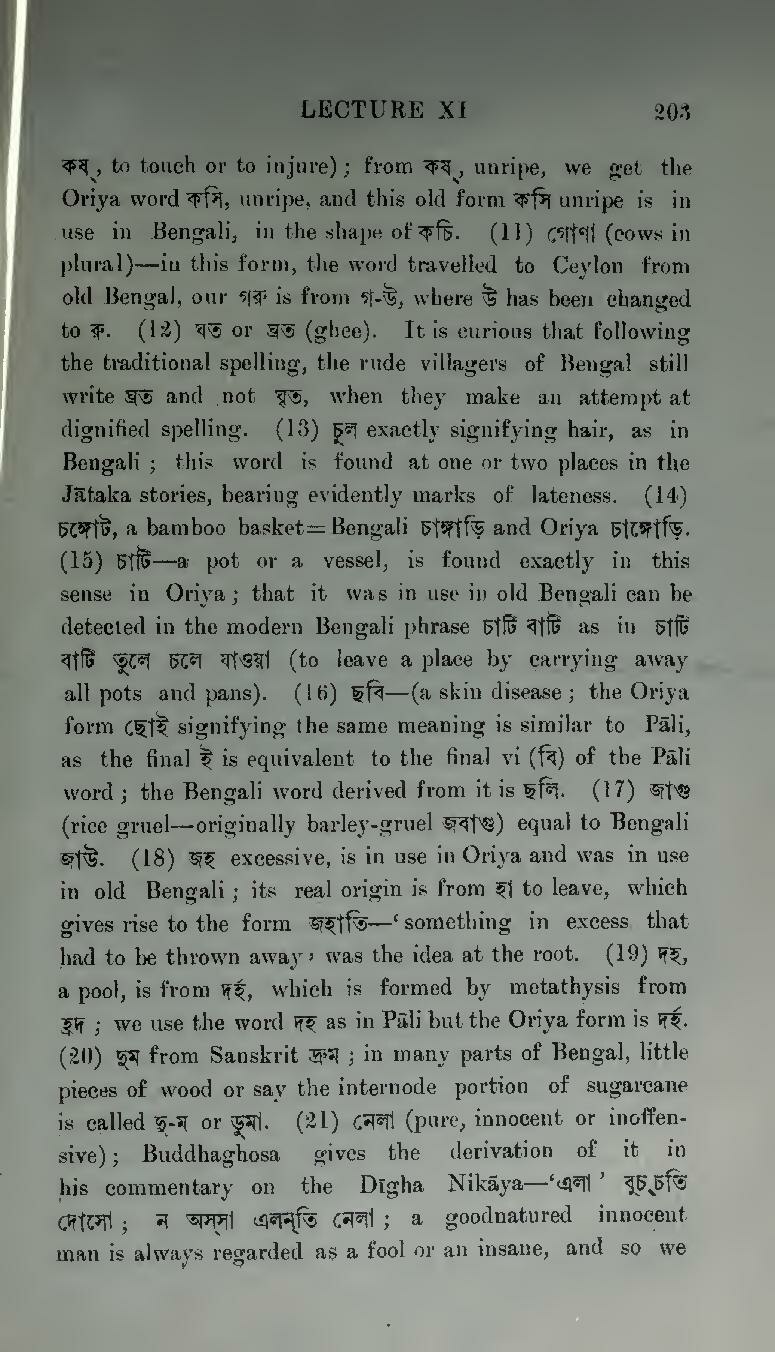কষ্, to touch or to injure); from কষ্, unripe, we get the Oriya word কসি, unripe, and this old form কসি unripe is in use in Bengali, in the shape of কচি. (11) গোণা (cows in plural)—in this form, the word travelled to Ceylon from old Bengal, our গরু is from গ-উ, where উ has been changed to রু. (12) ঘত or ঘ্রত (ghee). It is curious that following the traditional spelling, the rude villagers of Bengal still write ঘ্রত and not ঘৃত, when they make an attempt at dignified spelling. (13) চুল exactly signifying hair, as in Bengali; this word is found at one or two places in the Jātaka stories, bearing evidently marks of lateness. (14) চঙ্গোট, a bamboo basket = Bengali চাঙ্গাড়ি and Oriya চাঙ্গোড়ি. (15) চাটি—a pot or a vessel, is found exactly in this sense in Oriya; that it was in use in old Bengali can be detected in the modern Bengali phrase চাটি বাটি as in চাটি বাটি তুলে চলে যাওয়া (to leave a place by carrying away all pots and pans). (16) ছবি—(a skin disease; the Oriya form ছোই signifying the same meaning is similar to Pāli, as the final ই is equivalent to the final vi (বি) of the Pāli word; the Bengali word derived from it is ছলি. (17) জাগু (rice gruel—originally barley-gruel জবাগু) equal to Bengali জাউ. (18) জহ excessive, is in use in Oriya and was in use in old Bengali; its real origin is from হা to leave, which gives rise to the form জহাতি—'something in excess that had to be thrown away' was the idea at the root. (19) দহ, a pool, is from দর্হ, which is formed by metathysis from হ্রদ; we use the word দহ as in Pāli but the Oriya form is দর্হ. (20) দুম from Sanskrit দ্রম; in many parts of Bengal, little pieces of wood or say the internode portion of sugarcane is called দু-ম or ডুমা. (21) নেলা (pure, innocent or inoffensive); Buddhaghosa gives the derivation of it in his commentary on the Dīgha Nikāya—'এলা' বুচ্চতি দোসো; ন অস্সা এলন্তি নেলা; a goodnatured innocent man is always regarded as a fool or an insane, and so we
